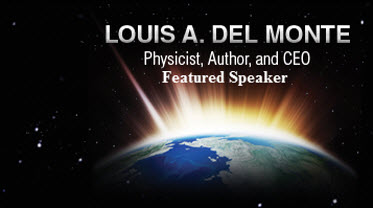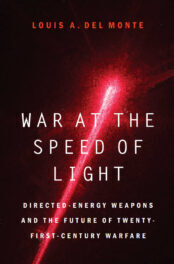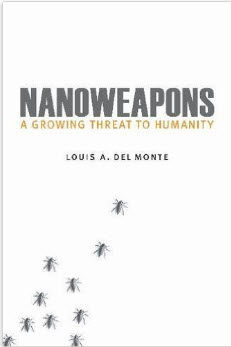“A delightful tour of the wonders of the universe. Lou Del Monte gives a concise description of how
science has labored at unraveling the universe’s mysteries.”
– Dr. Todd Ell, Technical Fellow, UTC Aerospace Systems
“Engaging…thought provoking examination of today’s scientific mysteries. Well thought out
approaches…well presented solutions.”
-Brian Link, BSME, MBA
Director – Fortune 500 Aerospace Corporation
GOODREADS REVIEWS:
Indiebookzone
rated it 4 of 5 stars
Louis Del Monte’s Unraveling the Universe’s Mysteries is an exciting, whistle-stop tour of the Big Questions that have occupied scientists over the course of the 20th century and right up to the present day. The book opens with an examination of the Big Bang since, although it is a phenomenon widely accepted within the scientific community, there is still no consensus as to where the energy required for the actual Bang came from. Del Monte also offers a discussion of multiverse theory, a speculative theory that competes with that of the Big Bang, which is particularly interesting as it offers an alternative to one of the seeming cornerstones of scientific understanding but is far, far less well-known among the general public. Additionally, Del Monte discusses the nature of the Big Bang itself, another issue that divides scientific opinion, and summarises the various explanations that have been offered for its very occasion. He also doesn’t shy away from considering what the universe was actually like prior to the Big Bang.
Of course, the nature and origin of the Big Bang is only one puzzle that exists in science and so Del Monte moves on to consider numerous other areas of current inquiry. He investigates: Where is the Missing Antimatter?; The Mysterious Dark Matter; Is Dark Energy Real or Simply a Scary Ghost Story?; The Mysterious Relationship Between Time, Existence and Energy; Is Time Travel Possible?; Time Travel Paradoxes; The Mysterious Nature of Light; The Energy Enigma; The Quantum Universe; How is the Universe Going to End?; Is There Another Earth?; Are There Advanced Aliens?; and even more. There is definitely something for everyone here.
Clearly all of the topics considered in Unraveling the Universe’s Mysteries are active areas of scientific research and so Del Monte’s explanations allow readers to have as up-to-date an understanding as is possible. Of course, any account based on cutting edge discovery and centred on still very active areas of scientific research will have to rely to some degree or other on speculation and supposition, but Del Monte provides detailed analysis and verifiable authorities throughout his discussion and so his explanations are sound. He uses well established formula and sources to justify all of his reasoning and often uses real world examples in order to make the more complex issues easier to understand. Although having a scientific background would no doubt make grasping the many difficult issues discussed far more straightforward, this is by no means necessary as Del Monte’s clear explanations and reasoning make Unraveling the Universe’s Mysteries accessible to all.
Given the broad scope of its contents, Unraveling the Universe’s Mysteries is a hugely ambitious book. Del Monte clearly has a great love of science and wishes to share this enthusiasm with readers at the same time as informing them. However, no doubt in his enthusiasm to cover as many topics of interest as possible, some sections/ideas seem a little rushed. For example, the idea of M-theory as a potential Theory of Everything is fascinating and could have justified far more discussion. Additionally, the more esoteric chapters considering the nature of extraterrestrial life, the future for mankind and the God v Science debate all felt a little hurried. The information involved was clearly presented and incredibly interesting, it just would have been great if there had been more of it. With such rich subject matter, Unraveling the Universe’s Mysteries could have been a much longer book or even a series of books.
Unraveling the Universe’s Mysteries is an entertaining and informative book that is bound to aid and increase readers’ understanding of science. It will be interesting to see what subject(s) Louis Del Monte tackles next.
Enid Brightman
rated it 5 of 5 stars
As Louis Del Monte notes in his introduction to Unravelling the Universe’s Mysteries, science is rapidly evolving and scientific knowledge doubles approximately every ten years or so. To illustrate this fact, Del Monte points to the three theories that were held to be universal truths as recently as the beginning of the 20th century:
1. Time was an absolute, independent of distance and movement of observers to an event.
2. The universe consisted of the Milky Way galaxy.
3. The universe was eternal and static.
Of course, as Del Monte goes on to explain, all three of these theories have now been proved incorrect. In order to establish just how fast-moving the world of scientific understanding is, as well as to establish the investigative approach that he will take with the rest of the book, Del Monte examines each of these “false” theories and presents the empirical evidence that proved them to be incorrect. So, for example, in the case of the first of these theories, it was Albert Einstein’s theory of special relativity that proved its undoing.
As well as highlighting the fact that the 20th century was a golden age of scientific discovery, a period that yielded more breakthroughs than any previous century, the discussion of these three key scientific fallacies serves demonstrate the innumerable questions that science poses and the difficulty with reaching a “certain” conclusion. According to Del Monte, this problem gives rise to the Del Monte Paradox whereby “each significant scientific discovery results in at least one profound scientific mystery.”
With this in mind, Del Monte has written Unraveling the Universe’s Mysteries in order to investigate and provide insight into some of science’s greatest outstanding mysteries. This could, of course, be a potentially mammoth (arguably unattainable) goal and so Del Monte wisely concentrates on three main areas of inquiry: (1) What Caused the Big Bang? (2) What Mysteries Still Baffle Modern Science? and (3) Are We Alone?
All three of these areas clearly involve complex problems and potentially hard to grasp theories and ideas, but Del Monte presents his discussion in a very readable fashion. Unusually for a hard science book, his is a first person narrative, but this fairly informal style gives the book something of a conversational tone and so makes it a pleasure rather than a chore to read his explanation of complex principles. The chapters are short and the discussion flows well, with bite-sized chunks of detailed science being provided alongside clear and authoritative explanations.
Although Unravelling the Universe’s Mysteries is a book that would suit the layman, it would also inform and entertain those with some or even detailed scientific knowledge. While the information provided is straightforwardly presented and neatly explained, Del Monte covers a lot of complex ground in this book and so there is plenty of information and analysis to keep readers of all levels of scientific understanding engrossed. For example, in the second section alone Del Monte covers topics as difficult and varied as absent antimatter and the existence of dark energy, the nature of light and the truth of the quantum universe. There’s also plenty of speculative science (the possibility of time travel and the related problem of paradoxes, the existence of alien life and the wisdom of making contact, etc) to keep fans of Michio Kaku’s recent books entertained too!
Unravelling the Universe’s Mysteries is an excellent science book that covers a huge range of material in a very accessible fashion. The work of many famous scientists – Einstein, Dirac, Plank, Heisenberg, Hawking, Turing, etc – is discussed and analysed and, where necessary, clear use of equations is made to illustrate the topic under discussion. Del Monte has done a great (and convincing) job with his analysis, occasionally including references to articles which could provide useful further information for readers, and really succeeds in highlighting the majesty of science and the still monumental numbers of mysteries that are waiting to be solved.






STAY CONNECTED